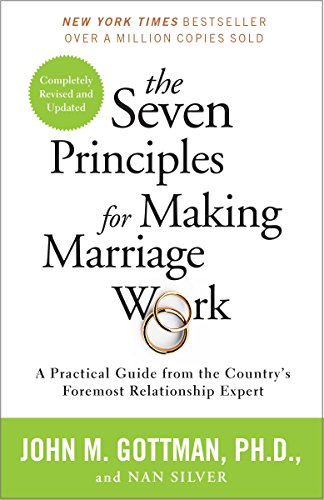The Science of Love: Gottman's Love Lab Findings
A lot of the work I do revolves around couples and relationships, as compulsive sexual behavior never occurs in a vacuum, so I thought I’d write about… the science of love.
Gottman is a world-renowned relationship expert, and his work has changed the way we think about love and marriage. His research includes studying what he calls "the masters and disasters of love"—couples who have either made their relationship work or seen it fall apart. After studying these couples, Gottman was able to identify four behaviors that he called "the four horsemen of the apocalypse." These four behaviors—criticism, contempt, defensiveness, and stonewalling—were present in every failed relationship, while couples who had lasting relationships did not exhibit these behaviors.
Criticism is when you attack your partner's character rather than their behavior. For example, "you're such a slob" is a criticism, whereas "I don't like it when you leave your clothes on the floor" is not.
Contempt is when you see your partner as beneath you and speak to them accordingly. This could manifest as name-calling, eye-rolling, or mockery.
Defensiveness is feeling the need to justify your actions instead of taking responsibility for them.
Stonewalling is shutting down emotionally and withdrawing from the conversation altogether.
In addition to identifying the four horsemen, Gottman also developed a theory of how relationships work called "the Sound Relationship House Theory." This theory posits that there are nine essential components to a lasting relationship: friendship, intimacy, positive sentiment override, shared meaning, mutual respect and admiration, trust and commitment, Turn Toward Each Other Instead of Away from Each Other During Conflict, Solve Problems Together Rather Than Against One Another, Cope With Stress and Strains Effectively. Ten years ago, Gottman put this theory to the test by opening up his own lab—which he lovingly dubbed the "Love Lab"—where couples could come and spend 24 hours being studied by himself and his team of researchers.
How the Love Lab Works
The Love Lab is located on the campus of the University of Washington in Seattle. There, couples are hooked up to sensors that measure their physiological reactions, such as heart rate and blood pressure. They are then asked to discuss areas of conflict in their relationship while researchers observe and take notes. This process is repeated over the course of 24 hours so that researchers can get a comprehensive view of each couple's interactions.
To date, Gottman has studied over 3,000 couples in his Love Lab, and his findings have been groundbreaking. He has been able to use the data collected in the lab to fine-tune his Four Horsemen theory as well as his Sound Relationship House Theory. In fact, he has been so successful in using data to predict which relationships will succeed and which will fail that he claims he can do so with 94% accuracy!
Bids for Affections
One of the most important things Gottman has learned from studying couples in his Love Lab is the importance of what he calls "bids for affection." A bid for affection is any gesture—verbal or nonverbal—that a partner makes that signals they wish to connect with us emotionally. For example, if your partner comes home from work and tells you about their day—even if it's just a brief recap—they are making a bid for your attention and emotional connection.
Couples who have lasting relationships know how important it is to respond positively to their partner's bids for affection. In other words, they make an effort to turn toward their partner instead of away from them when they make a bid. On the other hand, couples who do not have lasting relationships tend to turn away from or ignore their partner's bids 70% percent of the time! If you want your relationship to stand the test of time, make sure you're paying attention to your partner's bids for affection and making an effort to respond positively.
Ten Common Bids for Affection…
These are small bids that we make for our partner's attention which can take the form of words, expressions, or even touch. For example, saying "I love you," giving a compliment, or kissing goodnight are all examples of bids for affection. Responding positively to these bids—for example, by saying "I love you too," returning the compliment, or kissing back—increases intimacy and strengthens the relationship. Ignoring or rejecting these bids, on the other hand, has the opposite effect and can lead to resentment and resentment over time.
John Gottman’s work has changed the way we think about love and marriage. In his research with couples, Gottman has identified four behaviors that he calls "the four horsemen of the apocalypse." These four behaviors—criticism, contemptuousness,defensiveness, and stonewalling—are present in every failed relationship. He has also developed a theory of how relationships work called "the Sound Relationship House Theory." This theory posits that there are nine essential components to a lasting relationship. Ten years ago, Gottman opened up his own lab—"the Love Lab"—where couples could come spend 24 hours being studied. To date, he has studied over 3,000 couples in his Love Lab. Some important things Gottman has learned from studying couples in his Love Lab is the importance of responding positively to bids for affection. Paying attention to bids for affection makes sure you’re turning towards your partner instead away from them. By doing this you are increasing your chances of having lasting relationships.




